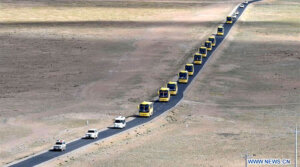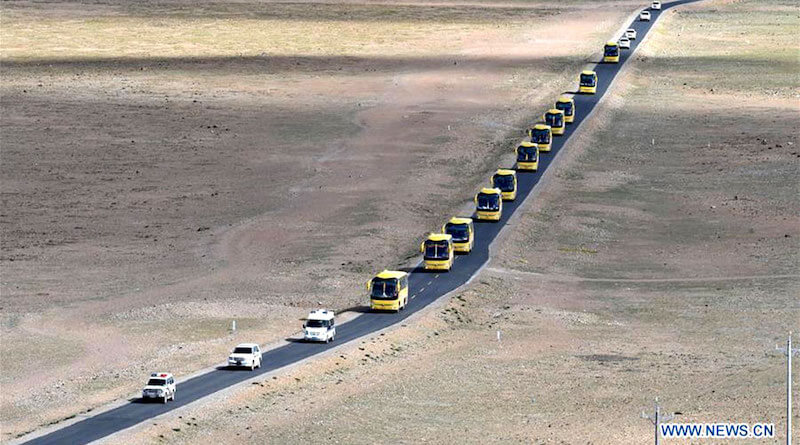China to forcibly resettle 17,555 Tibetans from Nagchu

DHARAMSALA, 28 June: Citing the protection of the region’s fragile ecosystem, Chinese authorities have announced to displace and resettle 17,555 Tibetans from Nagchu in the traditional Tibetan province of Kham.
A total of 17,555 people will be relocated away from high-altitude places in Nagchu through a local program to improve people’s living and protect the plateau region’s fragile ecosystem, reports Chinese state-run Xinhua.
The people had lived in places with harsh weather and relatively backward production and living conditions, where the grassland degraded, said
China’s Regional forestry and grassland administration Director Wu Wei has said in the report that Tibetans have “lived in places with harsh weather and relatively backward production and living conditions, where the grassland degraded.”
“The relocation scheme reflects a people-centred development thought, taking consideration of both the ecological protection and people’s demand for a better life,” Wu has said.
However, activists and rights groups have long maintained that Typically, the Government of China claims “environmental protection,” “reforestation” and “poverty alleviation” as justifications for such practices.
While Chinese authorities have in the past forced the resettlement policy on the Tibetan Nomads and the rural population in Tibet accusing the Tibetans of causing untold damage to the vast grasslands and destroying the natural habitat of the area, Tibetan nomads have lived in perfect harmony with their surroundings for centuries.
Additionally, Julia Klein, an assistant professor of Ecosystem Science and Sustainability at Colorado State University, who has studied with her team the impact of the traditional nomadic grazing system on the Tibetan grasslands has maintained that “grazing provides nutrients for the topsoil, thereby helping in the regeneration of grass instead of causing damage.”
The Tibetan plateau, “is a system that has evolved with grazing; the removal of grazing from the system could have profound ecological consequences,” Klein has said in 2019 when Tibetan nomads were forcibly ‘resettled’ by China, reports the First Post.
Additionally, in the same report, Dan Miller, an American rangeland expert who has studied grasslands across Asia comprehensively has also propagated encouraging livestock mobility, stating that the policy of requiring nomads to lead settled lives “goes against state-of-the-art information and analyses for livestock production in pastoral areas”.
Meanwhile, Xinhua has declared that “the region’s overall relocation plan will cover more than 130,000 people in Tibet’s nearly 100 townships in eight years.”






